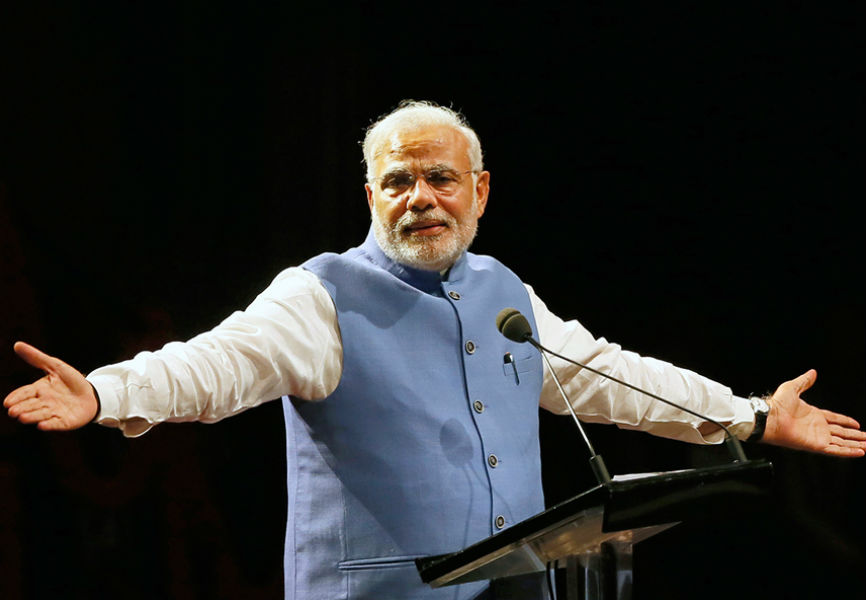A candid Assessment of the popular prime minister's first three years in office
Indian Prime Minister Narendra Modi will mark his third anniversary in office on Friday. It's time to take stock of his progress.
To put it bluntly, Modi has done...
well. I wouldn't say he's done great, but he has done well. Some of his notable wins include passage of the Goods and Service Tax, which I consider one of the most import reforms in the history of India. It will unify the country under a single tax code, give the government a clearer idea of what's happening in India's economy, help formalize more of the informal economy, and boost revenues supporting the country's fiscal health.
Modi also gets high marks for introducing a new bankruptcy law, giving the Reserve Bank of India more power to tackle inflation, moving India towards using digital payments rather than cash, and upgrading the country's infrastructure.
This last point is critically important: India now spends more on infrastructure than on defense. That's rare in the world today.
But there are areas where he's made little progress. Reform of the way land is bought and sold, changes to labor law to make them more business friendly, opening the country's capital markets, and helping more people gain access to electricity. There's still a lot to do in all these important, yet occasionally controversial areas.
Investment is a bit of a gray area. Foreign direct investment is at record highs, and Modi has done a lot to attract business. But we feel he could do more within the letter of the law to clarify FDI guidelines and reduce investment restrictions.
Modi, like all leaders, has his critics. Some say he has fallen short of expectations. But that's the key word here: expectations. I think that after his election in 2014, there was exuberance not grounded in reality. He still faces an (often uncooperative) legislature and a demanding domestic audience that cares more about daily necessities than long-term investment.
Given that, Modi has accomplished a lot in just three years on reforms that will improve India's economy.
Shailesh Kumar is a senior analyst in Eurasia Group's Asia practice
Alex Gibson, Eurasia Group's digital editor, edited this article and produced the accompanying video

 Indian Prime Minister Narendra Modi will mark his third anniversary in
office on Friday. Time to take stock of his progress.
Indian Prime Minister Narendra Modi will mark his third anniversary in
office on Friday. Time to take stock of his progress.